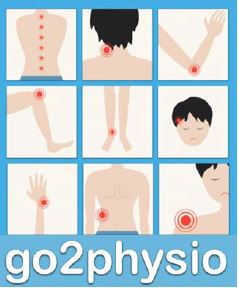-
Initially it may be helpful to use a covered icepack to ease your pain - never apply ice directly onto your skin.
-
Alternatively heat can be soothing, so a covered hot water bottle may also be used. You should not use heat /ice for more than 15 minutes, three to four times a day Painkillers may help you keep moving, so
-
Sensible use of painkillers such as paracetamol, and ibuprofen will help, not harm your back.
-
if you are already taking medication for something else or have other health problems, check with your local pharmacist before taking painkillers.
-
Only take painkillers as instructed on the packet.
|
-
Recovery is faster if you can stay at or get back to work as early as possible.
-
Don’t worry if your back still hurts; consider doing light tasks at first if this helps you get back to work easier and quicker.
-
Stay active and remember to keep moving.
-
Do normal activities as much as possible and use painkillers as needed.
-
With regard to sports, start with light fitness training, and play when you feel ready.

|
|
Sometimes when you get back pain you can also get pain in one or both legs (sciatica).
This can cause pins and needles or a shooting, stabbing pain to the legs.
This can be very painful but this is common when you have back pain.
Do I need to see a doctor or a therapist?
Not ussually - if you follow the right advice and take the right medication, your back problem should improve over the next 6 weeks.
|
If your back symptoms are still interfering with you ability to do normal things after 6 weeks, this is the time to seek further professional advice.
If you are registered with a Salford GP, you can now refer yourself to NHS physiotherapy at:
 www.srft.nhs.uk/go2physio www.srft.nhs.uk/go2physio

|